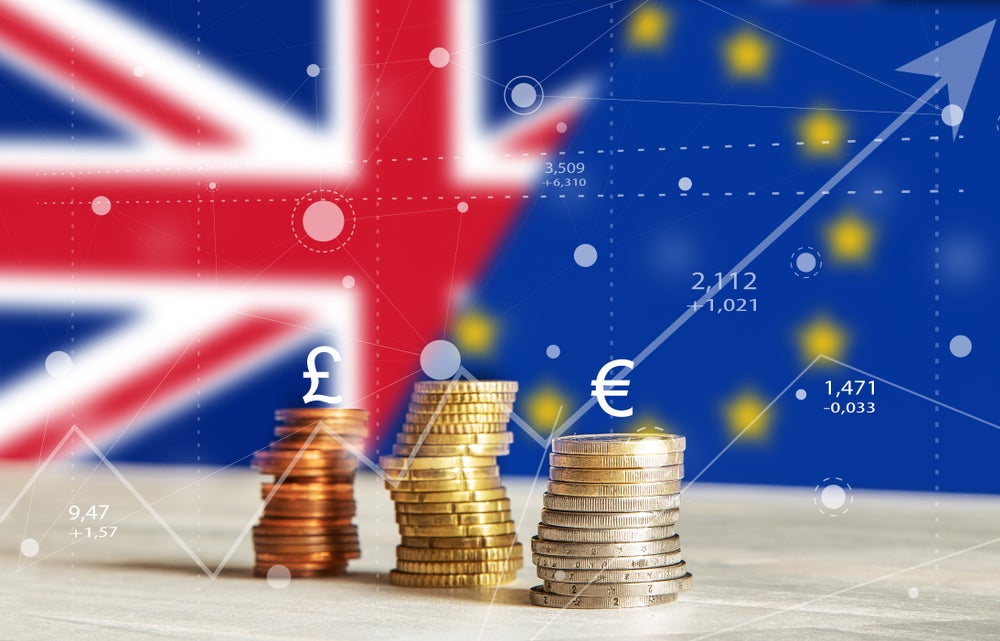
More UK investors believe Brexit will have a positive impact on the economy than do those who believe its effect will be negative, according to UBS’ Investor Sentiment Survey for Q1 2019.
Forty-one per cent of high-net-worth investors believe the impact of Brexit on the economy will be positive, against 35% viewing it as negative.
Political uncertainty remains a concern for investors, with 43% identifying it as the biggest worry for their investments.
However, this is a drop from 55% in Q4 of 2018.
Home bias in Brexit’s expected impact on economy
Business owners are also optimistic with 44% believing Brexit will have a positive impact on their business, and 28% not expecting any impact at all.
This hints at a larger trend of home bias among UK investors, also borne out in the survey’s data.
How well do you really know your competitors?
Access the most comprehensive Company Profiles on the market, powered by GlobalData. Save hours of research. Gain competitive edge.

Thank you!
Your download email will arrive shortly
Not ready to buy yet? Download a free sample
We are confident about the unique quality of our Company Profiles. However, we want you to make the most beneficial decision for your business, so we offer a free sample that you can download by submitting the below form
By GlobalDataThirty-four per cent are optimistic about the European economy, compared to 44% stating optimism for the UK over the next 12 months.
This is also represented worldwide, with 60% of investors feeling optimistic on their home economy, compared to 51% on the global economy.
James Mulford, head of UK mandates and investment content at UBS, says: “Home bias makes portfolios susceptible to political and other domestic risks, whereas multi-asset mandates and other investments that are diversified globally typically produce better risk-adjusted returns over the longer term.”
Caution needed on Brexit impact on economy
Of the survey’s findings, Mark Goddard, head of UBS’s high-net-worth London segment, says: “Between multiple meaningful votes in Parliament and pivotal European Council summits, it has been a challenging quarter for our clients, who are looking to minimise the impact of domestic political and market factors on their investments and businesses.
“Despite this, this survey shows that UK investors and business owners have a much more positive mindset than towards the end of 2018. Investors have managed to set aside concerns over prolonged uncertainty when assessing their financial objectives and economic outlook.
“While confidence in the UK economy is currently high, the ramifications of continued Brexit negotiations are still unknown. It will be interesting to see what the quarter brings in terms of the political environment and the impact on the pound.”
Thirty-six per cent of high-net-worth investors cite the value of sterling as a concern, with 31% worried about the pound’s long-term competitiveness.
Caroline Simmons, UBS’ deputy UK chief investment officer, adds: “Though the threat of an imminent no-deal Brexit has been removed, supporting sterling temporarily, uncertainty could return with a potential General Election.
“We continue to advise hedging downside risks to sterling and maintaining global diversification in order to manage political risks.”







